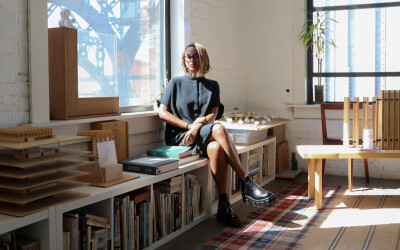Breonna Taylor was an essential worker. An EMT with aspirations to be a nurse, she was one of the people whose daily labor of keeping people safe we have come to value anew in the age of COVID-19. In March, Louisville, Ky., police officers killed her after their choice to serve a no-knock warrant in plain clothes after midnight was met with gunfire by her boyfriend, who was startled by the intruders. Investigations are ongoing, but no charges have been brought against the officers.
In a country reeling from being involuntary witnesses to the murder of George Floyd by Minneapolis police, Breonna Taylor’s death does not fit the spectacular forms of police killing that we have come to associate with America’s nefarious lynching past. As such, the Louisville protests on her behalf after Floyd’s death were belated attempts to rectify and recognize the ways that Black women are rarely the first thought in our outrage over police shootings. But Black women are surely worthy of more than secondary outrage. Rendering Black women as the afterthought in matters of police violence necessitated the creation of the Say Her Name campaign in 2015, a perennial reminder that Black women are victims of state violence too.
Why does it remain so difficult for outrage over the killing of Black women to be the tipping point for national protests challenging state violence?
One argument is that the spectacle of video makes our outrage easier to access. We watched men like Eric Garner, Walter Scott and Philando Castile get killed by police on video while doing nothing that warranted lethal force or any force at all. Those killings, displaying the officers’ clear disregard of Black life and distrust of Black people’s intentions, conjure racial terrors of old–of men hunted, paraded, humiliated and murdered for sport, often by police or with police as willing spectators or participants. But when Black women and girls like Aiyana Stanley-Jones, Tanisha Anderson, Atatiana Jefferson and Charleena Lyles are killed, it is often out of the public eye. And in a world where the pains and traumas that Black women and girls experience as a consequence of both racism and sexism remain structurally invisible and impermeable to broad empathy, these killings recede from the foreground quietly.
Continue Reading: time.com



